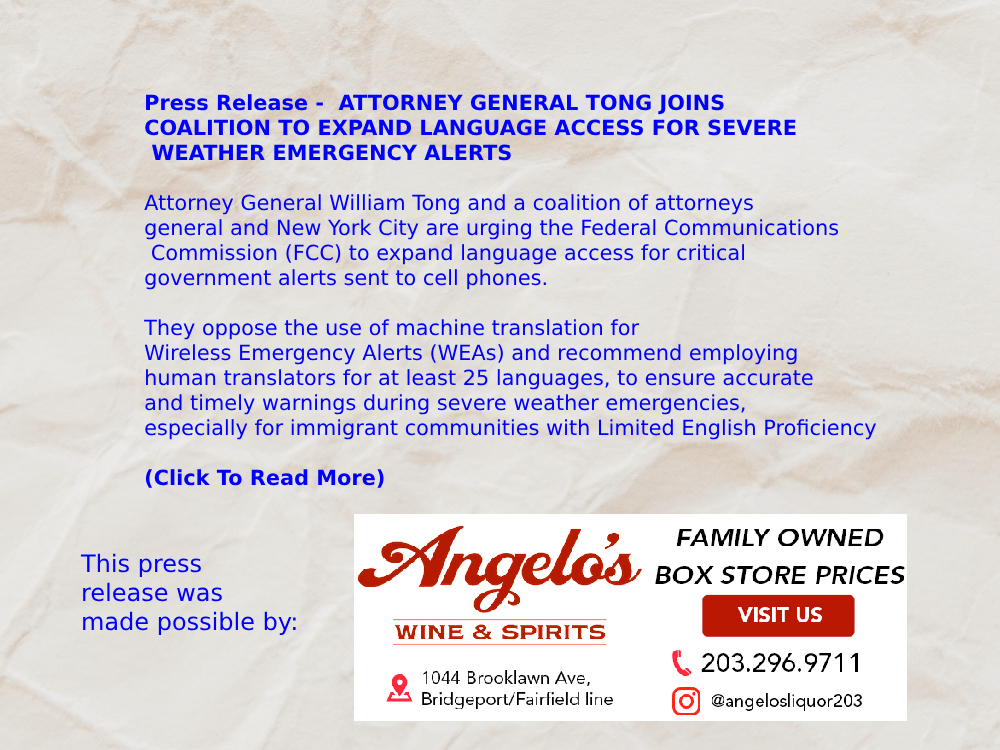Attorney General William Tong joined a coalition of 16 attorneys general and New York City in calling on the Federal Communications Commission (FCC) to expand language access for critical government alerts sent to cell phones, known as Wireless Emergency Alerts (WEAs). In a comment letter, the coalition acknowledges the important steps FCC has taken to expand access to WEAs but notes that this proposal would require wireless companies to use machine translation rather than human translation for WEAs and would only include translations for 13 languages. Following multiple severe weather emergencies across the country, Attorney General Tong and the coalition urge FCC to adopt its alternative proposal to use human translators, which are far more reliable, instead of machine translation, and to increase the number of available languages from 13 to at least 25.
“Severe weather emergencies—like the floods we are seeing across Connecticut this month—can be life-threatening and fast developing. Machine translation is just too glitchy and imprecise for this type of highly sensitive message. As our country experiences more dangerous, more frequent weather emergencies fueled by climate change, we need to do everything we can to get as many people as possible accurate, timely warnings,” said Attorney General Tong.
The FCC proposes the use of machine translation applications on cell phones that would translate English WEAs to a user’s preferred language without any review by human translators. However, machine translations are not always reliable. A recent joint study by UCLA and Memorial Sloan Kettering Cancer Center found that the accuracy rate of machine translations from English varied widely for different languages – from 94 percent accuracy to as low as 55 percent accuracy.
During severe weather emergencies, which are increasingly fueled by climate change, current and accurate information can be critical to survival. Even a slim chance of error in translation could have severe consequences. Instead, the coalition endorses the FCC’s alternative approach of using alert templates for various emergency situations. Those templates would be created by humans, pre-installed on cell phones, and activated when an English-language WEA is received by the phone.
If FCC moves forward with its proposal to include only 13 languages, immigrant communities with high rates of Limited English Proficiency (LEP) would be excluded from WEAs. To reach more of these communities now and in the future, Attorney General Tong and the coalition recommend that WEAs be supported in all languages spoken by at least 300,000 people in the U.S. over five years old – a total of more than 25 non-English languages. The coalition also urges FCC to consider adding additional languages every few years based on the most recent U.S. Census Bureau data on spoken languages and LEP rates.

